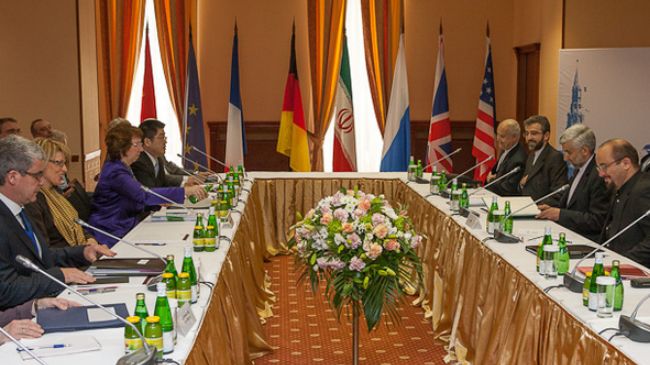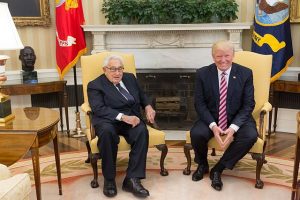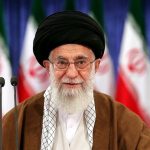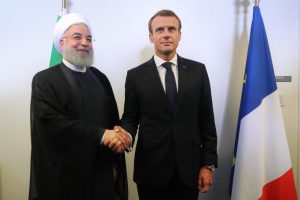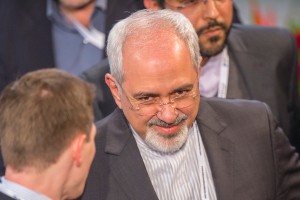by Mohammad Ali Shabani
After the nuclear talks between Iran and the P5+1 (the United States, Britain, France, Russia, China and Germany) in Moscow last June, dialogue at the senior political level was put on ice due to the American presidential vote. Eighty-five days have passed since the re-election of Barack Obama, and high-level talks between Iran and the P5+1 have yet to resume. There are many reasons for this.
On the Iranian side, there are four main, mutually reinforcing factors behind Tehran’s cautious approach to fresh talks. First, certain figures within the political system, the nezaam, are in favor of waiting for Obama to finalize changes to his cabinet, including his national security team. These figures are by no measure dominant. Indeed, the prevailing narrative in Tehran is that a change of personalities won’t make any difference and that the American nezaam has certain engrained interests and institutions as well — among them, enmity with the Islamic Republic.
Meanwhile, more influential Iranian figures are pushing for Western positions to be clarified in more detail before the resumption of talks. The reason behind this maneuver is to maximize readiness for potential damage control; Iran does not want to be blamed for any diplomatic failure.
Inherent in the latter aspect of the situation is an Iranian desire to not be seen as being dragged to the negotiating table by sanctions. While Iran does seek sanctions relief, it wants such measures to be put forward in a serious manner.
The majority of the most punishing Western oil and financial penalties were imposed after the beginning of Iranian enrichment of uranium to 19.75% purity in 2010. In exchange for movement on this level of enrichment, Tehran would need some removal of the post-2010 sanctions, which include the EU oil embargo, shipping & insurance penalties, as well as US sanctions on the Central Bank of Iran.
The most important factor affecting Iranian behavior, however, is how it has entered its election cycle. Tehran is filled with debate and rumors about likely presidential candidates and what they’ll be able to do after assuming office. Western policymakers would be wise to recognize that all politics is local and show an understanding for how the Iranian presidential elections may slow down dialogue. The Iranian leadership’s main preoccupation until June is to maintain maximum stability. In this context, a nuclear deal that cannot be sold at home is not necessarily better than no deal and more sanctions.
While the Supreme Leader has final say on the nuclear issue, the next president would at least initially be able to enter the scene with some fresh ideas — both his own and from higher circles — and have room for maneuvering. The exact amount of political space, of course, depends on which candidate will win.
There are two main reasons for this: first, a new president would be better suited to pursue an opening with blessing from above, as failure can easily be deflected on him before domestic public opinion. Second, whoever the next president will be, it is unlikely that he will at least initially be as divisive as Mahmoud Ahmadinejad. Less tension at home will give Iran a stronger negotiating stance, along with improved Western acceptance of an Iranian ability to deliver.
This line has been echoed by influential officials such as former envoy Sadeq Kharrazi, who has argued that “lively elections” will empower the government and bring “wise people to power” with a consequent greater Iranian capacity to extract concessions from the United States. Kharrazi also said that he didn’t believe relations between Iran and the US would be normalized during Obama’s second term prior to Obama’s re-election and has indicated that the real window for diplomacy on the nuclear issue will be after Iran’s presidential election. Kharrazi argues that this is because the Americans have never been and never will be willing to negotiate with Ahmadinejad’s government.
The writing between the lines is that many figures within Iran are not going to let any negotiations with the US be successful as long as Ahmadinejad is in power.
In sum, while Iran’s bottom line on the nuclear issue won’t change (i.e. enrichment on Iranian soil), the next Iranian president would at least initially be able to pursue an opening. Moreover, a new president would give the United States in particular a badly needed new “face” to deal with.
Ultimately, power to change the US-Iran relationship is equally in the hands of Barack Obama. A day after Obama’s first Nowruz message in 2009, at the end of a damning speech, Iran’s Supreme Leader responded that “if you change your attitude, we will change our attitude.” Most likely, that offer still stands.
Until then, a mutual desire to keep things from spiraling out of control will in all probability result in both sides kicking the can down the road until after this summer.
– Mohammad Ali Shabani is a doctoral researcher at the School of Oriental & African Studies, University of London and the Editor of Iranian Review of Foreign Affairs.

